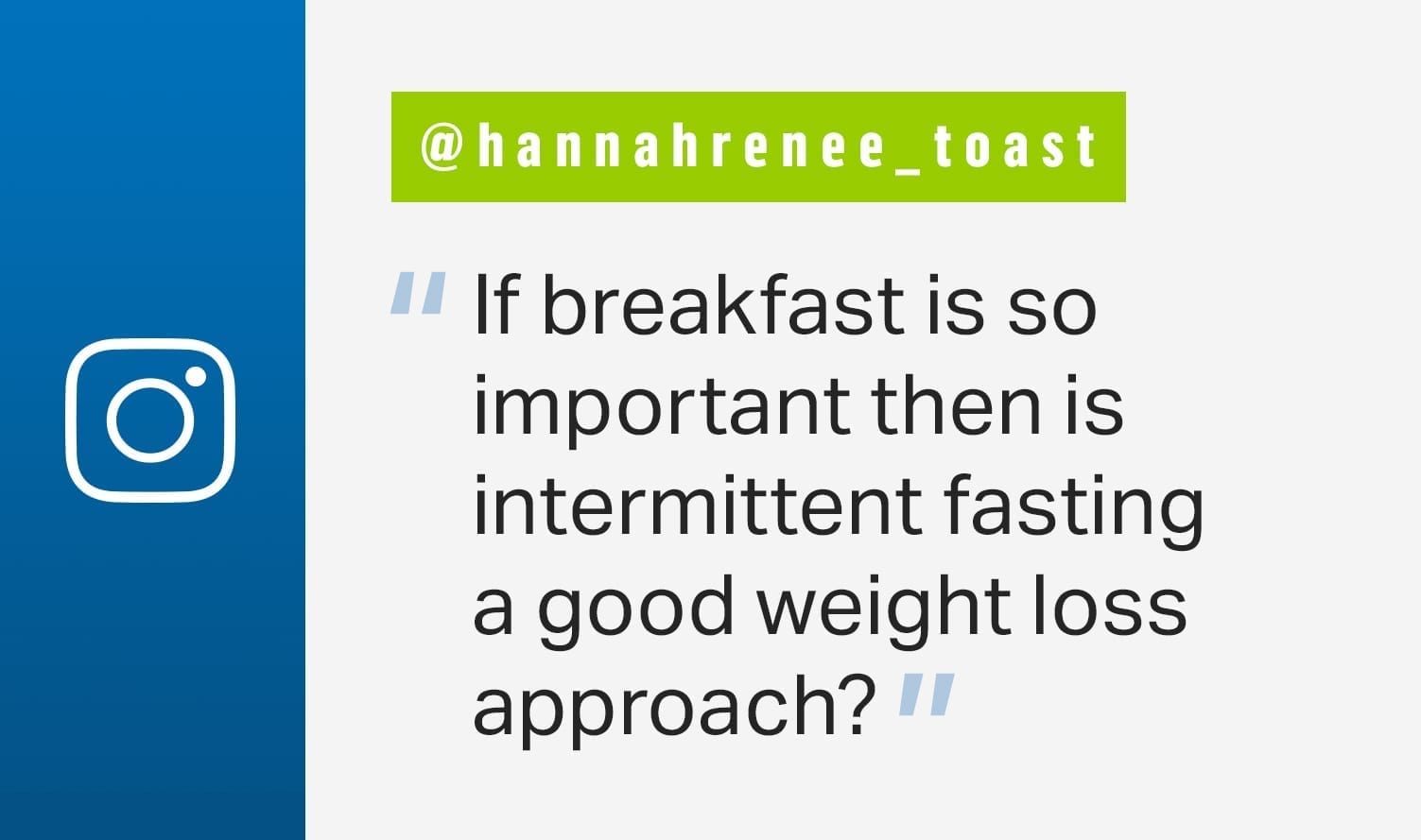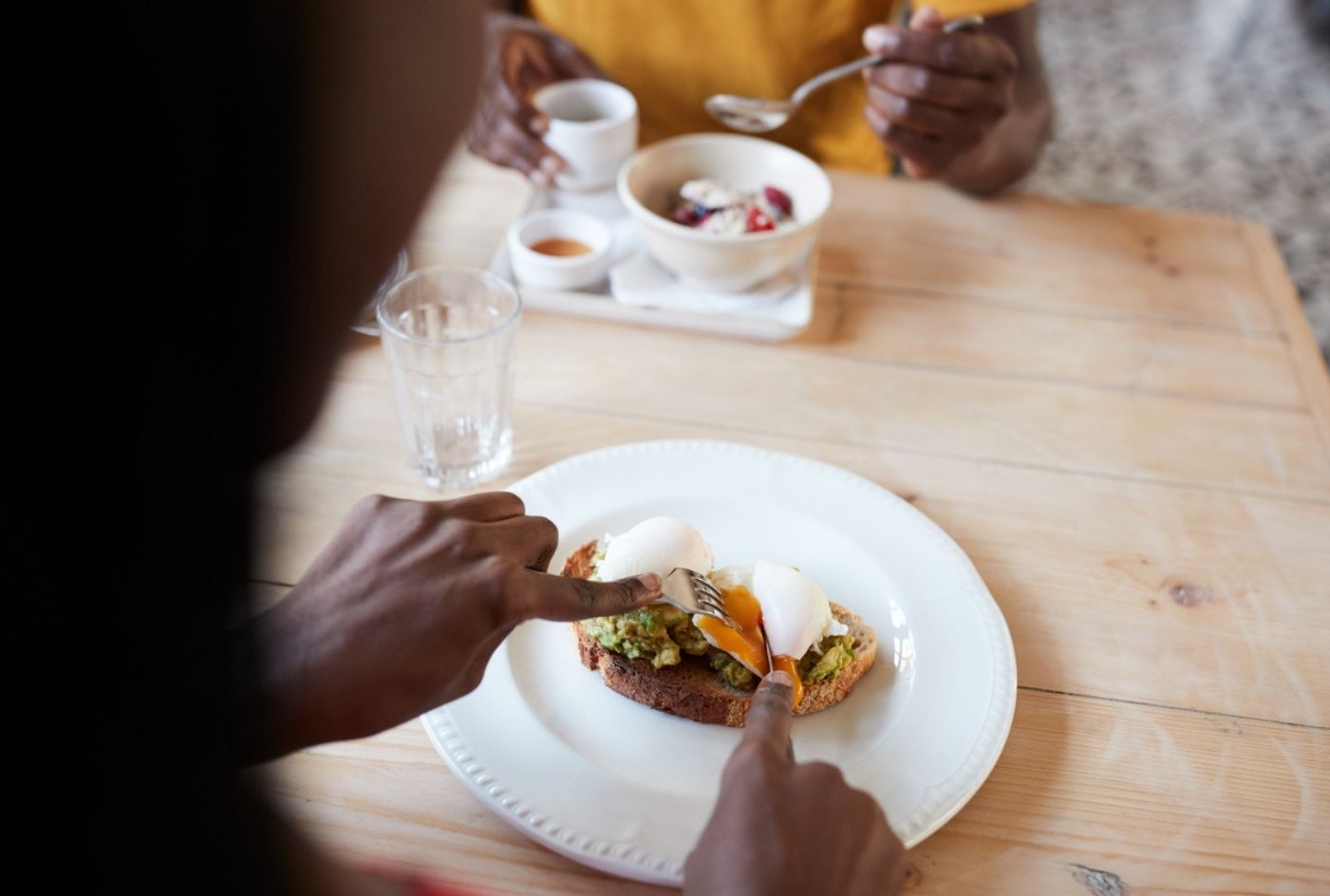

A preferred food regimen and life-style, intermittent fasting (IF) touts a number of advantages, together with weight reduction, safety from diabetes, improved intestine well being and lowered irritation. There are lots of several types of IF with numerous durations of fasting and non-fasting, together with the 16/8 technique, which entails consuming for 8 hours through the day — for instance, 10 a.m.–6 p.m., and fasting the opposite 16 hours.
There’s an enormous false impression on the subject of IF — considering breakfast will get dropped. The truth is, you continue to eat breakfast whereas intermittent fasting. Breakfast is all about breaking a quick. Intermittent fasting is all about cycles of fasting. It doesn’t essentially imply your first meal (aka breakfast) needs to be at 6 a.m. or 8 a.m. and even 11 a.m. The time you select to eat breakfast isn’t almost as essential as what you select to eat to interrupt any quick, any time of the day.
THE METABOLIC IDEA BEHIND INTERMITTENT FASTING
After we eat all day, (and by all day, I imply a typical three sq. meals and a pair of–3 snacks) our insulin ranges don’t usually have time to reset and drop for lengthy sufficient to permit our our bodies to begin burning off fats. When insulin is all the time turned on, we’re always storing, not depleting, vitality in our cells. The metabolic concept behind intermittent fasting is it forces our our bodies to show off the storing mechanism of insulin, and activate our physique’s capability to begin burning gas.
WHY QUALITY OF FOOD TO BREAK YOUR FAST MATTERS
Talking of insulin, when you have got your first meal (or ‘breakfast’), introducing even a small quantity of sugar and refined carbs after a protracted spell with out meals spikes insulin and sends your blood sugar into shock as a result of there’s nothing to decelerate the digestion and absorption of all these sugars. That’s why what you eat makes a distinction. For instance, consuming one thing like a extremely processed, sugary muffin wouldn’t be the only option as a result of it’s stuffed with sugar and easy carbs which spikes insulin much more. As an alternative, it’s greatest to concentrate on extra nutrient-dense meals that embrace a mixture of advanced carbs, protein, wholesome fat and veggies. Consuming meals excessive in fiber may help sluggish digestion and help weight-loss.
THE BOTTOM LINE
A lot of individuals discuss concerning the significance of consuming breakfast each day since it might probably assist you to really feel extra energized and stop a dip in insulin, which might trigger you to overeat, thus negating weight-loss targets. So, breakfast is essential — nevertheless it’s extra about what you eat than when you eat.
Intermittent fasting may help with weight reduction, nevertheless it’s not essentially one of the best strategy for everybody, so it’s a good suggestion to seek the advice of along with your physician or a registered dietitian earlier than attempting it. No matter you select to interrupt the quick with may be deemed breakfast, so the 2 will not be mutually unique.
No matter your most popular consuming habits, it’s essential to have a well-balanced meal after a protracted interval of fasting, to maintain insulin ranges from crashing. Should you want some wholesome recipe inspiration, strive these 20 make-ahead breakfasts with as much as 27 grams of protein.
Uncover lots of of wholesome breakfast recipes through “Recipe Discovery” within the MyFitnessPal app.

















